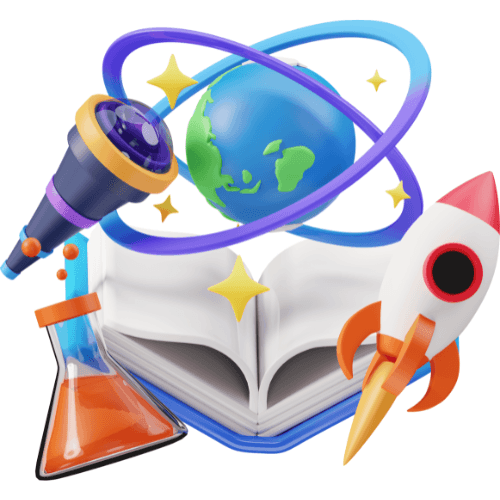Welcome to our comprehensive coverage of science news. We delve deep into the latest discoveries, breakthroughs, and trends in the world of science. Our mission is to keep you informed and engaged, whether you're a science enthusiast or a professional in the field. We cover a broad range of topics, from the mysteries of the cosmos to the intricacies of the human body. Let's embark on this journey of exploration and understanding together.
Unraveling the Mysteries of the Universe
Space, the final frontier. It's a vast, mysterious place that has fascinated humans for centuries. Today, we're going to delve into some of the latest discoveries and breakthroughs in astronomy and cosmology.
The Hubble Space Telescope, launched in 1990, has provided us with stunning images and valuable data about the universe. Recently, it captured an image of a galaxy cluster that is bending and magnifying the light from galaxies behind it, a phenomenon known as gravitational lensing. This discovery has given scientists a unique opportunity to study galaxies that are too far away to be seen directly.
In other news, the Mars Rover, Perseverance, has been making significant strides in its mission to explore the red planet. It has been collecting and analyzing samples of Martian soil and rock, searching for signs of past microbial life. The data it sends back to Earth could provide invaluable insights into the history and geology of Mars, and possibly, the existence of life beyond Earth.
Breakthroughs in Biotechnology
Biotechnology is a rapidly evolving field that has the potential to revolutionize medicine, agriculture, and many other sectors. Let's take a look at some of the most exciting recent developments.
Gene editing technology, specifically CRISPR-Cas9, has been making headlines for its potential to treat genetic diseases. Scientists have successfully used this technology to correct genetic mutations in human embryos, a significant step towards preventing inherited diseases.
In the realm of agriculture, scientists are harnessing the power of biotechnology to create genetically modified crops that are more resistant to pests, diseases, and harsh environmental conditions. This could lead to increased food production and security, particularly in regions that are prone to drought or infestation.
Advances in Artificial Intelligence
Artificial Intelligence (AI) is transforming the way we live, work, and interact with the world. From self-driving cars to virtual assistants, AI is becoming an integral part of our daily lives.
Deep learning, a subset of AI, is making it possible for machines to mimic the human brain's ability to learn and make decisions. For instance, Google's DeepMind developed an AI program, AlphaGo, that defeated a world champion Go player, a feat previously thought to be impossible for a machine.
AI is also making waves in healthcare. AI algorithms can analyze medical images, such as X-rays and MRIs, with a level of accuracy comparable to, and in some cases, better than human doctors. This could lead to earlier and more accurate diagnoses, improving patient outcomes.
Innovations in Renewable Energy
As the world grapples with the effects of climate change, the need for sustainable and renewable energy sources has never been more urgent. Let's explore some of the innovative solutions that are paving the way for a greener future.
Solar power is one of the most well-known forms of renewable energy, and advancements in solar panel technology are making it more efficient and affordable. Scientists are developing solar panels that can absorb more light and convert it into electricity, significantly increasing their efficiency.
Wind power is another promising source of renewable energy. Engineers are designing more efficient wind turbines that can generate electricity even at low wind speeds. These advancements could make wind power a more reliable and widespread source of energy.
The Future of Quantum Computing
Quantum computing is a cutting-edge field that promises to revolutionize the way we process and handle data. Unlike classical computers, which use bits that can be either 0 or 1, quantum computers use quantum bits, or qubits, which can be both 0 and 1 at the same time.
This property, known as superposition, allows quantum computers to perform multiple calculations simultaneously, potentially solving complex problems much faster than classical computers. Quantum computers could have a wide range of applications, from cryptography to drug discovery.
However, building a practical quantum computer is a formidable challenge. Qubits are extremely sensitive to their environment, and even the slightest disturbance can cause errors. Scientists are working on ways to make quantum computers more robust and reliable, and while there is still a long way to go, the progress made so far is promising.
The Role of Science in Society
Science plays a crucial role in society, shaping our understanding of the world and driving technological and societal progress. It helps us tackle global challenges, from climate change to pandemics, and improves our quality of life.
Public understanding and engagement with science are essential for informed decision-making and societal progress. Science communication, therefore, plays a vital role in bridging the gap between scientists and the public, making science accessible and understandable to all.
Science also fosters critical thinking and curiosity, traits that are valuable not only in scientific research but also in everyday life. By promoting scientific literacy, we can empower individuals to make informed decisions and contribute to a more informed and engaged society.
Wrapping Up Our In-Depth Science News Coverage
We've journeyed through the cosmos, delved into the building blocks of life, explored the frontiers of technology, and pondered the role of science in society. We hope this comprehensive coverage of science news has sparked your curiosity and deepened your understanding of the world. Remember, science is not just a body of knowledge; it's a way of thinking, a way of questioning the world around us. So, keep asking questions, keep exploring, and keep discovering. Until next time, stay curious.

